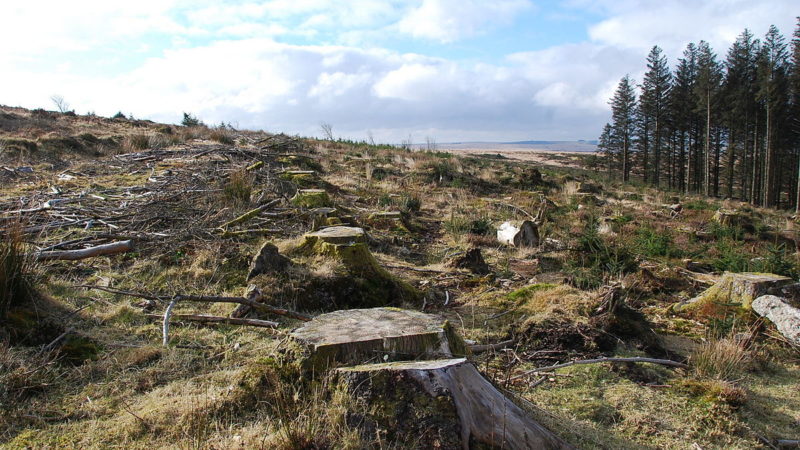The IPCC report on climate change shows we need to think radically about how to deal with climate change in Britain, writes Dr Kat Kramer.

On Monday, Climate Minister Claire Perry formally requested the Climate Change Committee to advise on long term climate targets for the UK – the first step required to change targets set in the Climate Change Act 2008.
Specifically, the Minister asked about options for dates for the UK to achieve ‘net zero’ greenhouse gas and CO2 emissions. This can be achieved where overall emissions are balanced by their removal from the atmosphere.
Two weeks ago, a report by the Intergovernmental Panel on Climate Change (IPCC) demonstrated the dangers of allowing global average temperatures to increase by 2ºC above pre-industrial levels.
While the report still found severe impacts at 1.5ºC of warming, these would appear to be at the high end of the current normal, while 2ºC would represent a new climate regime – unprecedented in human history. Humans have currently caused 1ºC of warming and are currently on track for 3ºC.
As a developed country, and indeed the instigator of anthropogenic climate change – through the use of coal to fuel the industrial revolution – the UK bears a responsibility to lead in reducing its emissions.
This will require rapid, and radical, emissions reductions through reduced consumption of high carbon products including palm oil and meat, strongly increased energy efficiency measures and moving towards 100% renewable energy, to provide electric power, heat and also the energy to drive our transportation system.
While these measures are necessary prerequisites for 1.5ºC, it seems likely that in addition some so-called ‘negative emissions’ might be needed to achieve the removals.
These must be achieved by respecting environment integrity and sustainability. Many of the proposed means of achieving negative emissions, (such as putting mirrors in space to deflect sun rays), are either sci-fi and far from being technologically proven or have obvious accompanying negative impacts on food security or natural systems.
Restoration of forest ecosystems affords an important opportunity not only to fix CO2 naturally through photosynthesis, but also to restore native biodiversity.
A 2016 report found that the UK was “among the most nature-depleted countries in the world”: the 29th lowest out of 218 countries. Of 8000 species assessed, 15% were deemed extinct or at risk of extinction in Great Britain.
Currently, only around 12.9% of the UK’s land is wooded, and only 29% of this is broadleaf, as opposed to conifer monoculture plantations that do not have the same biodiversity-supporting abilities. The EU average is 35% forest cover.
Restoring forests can additionally help manage river basin flows and to help increase resilience to flood risks, as well as improving water quality and preventing erosion. In Pickering in North Yorkshire, after four floods in ten years, 40,000 trees were planted to slow river flow. As a result, peak flow was reduced by 15-20% when 50mm of rain fell on saturated ground in 36 hours, increasing the flood resilience of the town.
In addition to environmental and social benefits, human health could directly benefit from forest restoration. A 2010 review found that “the results of a vast amount of research show that forest visits promote both physical and mental health by reducing stress”.
There are three million people in the UK diagnosed with depression, and the number is increasing. More forests around the country could mean more people can reasonably access these green anti-depressants.
Restoration of natural carbon-rich ecosystems is an important means not only of tackling the climate crisis through taking out existing CO2 from the atmosphere, but also through increasing the UK’s resilience to climate impacts such as flooding. Additionally, there are potentially important benefits both to the country’s wildlife – and its people.
Dr Kat Kramer is Christian Aid’s Global Climate Lead.
To reach hundreds of thousands of new readers we need to grow our donor base substantially.
That's why in 2024, we are seeking to generate 150 additional regular donors to support Left Foot Forward's work.
We still need another 117 people to donate to hit the target. You can help. Donate today.



